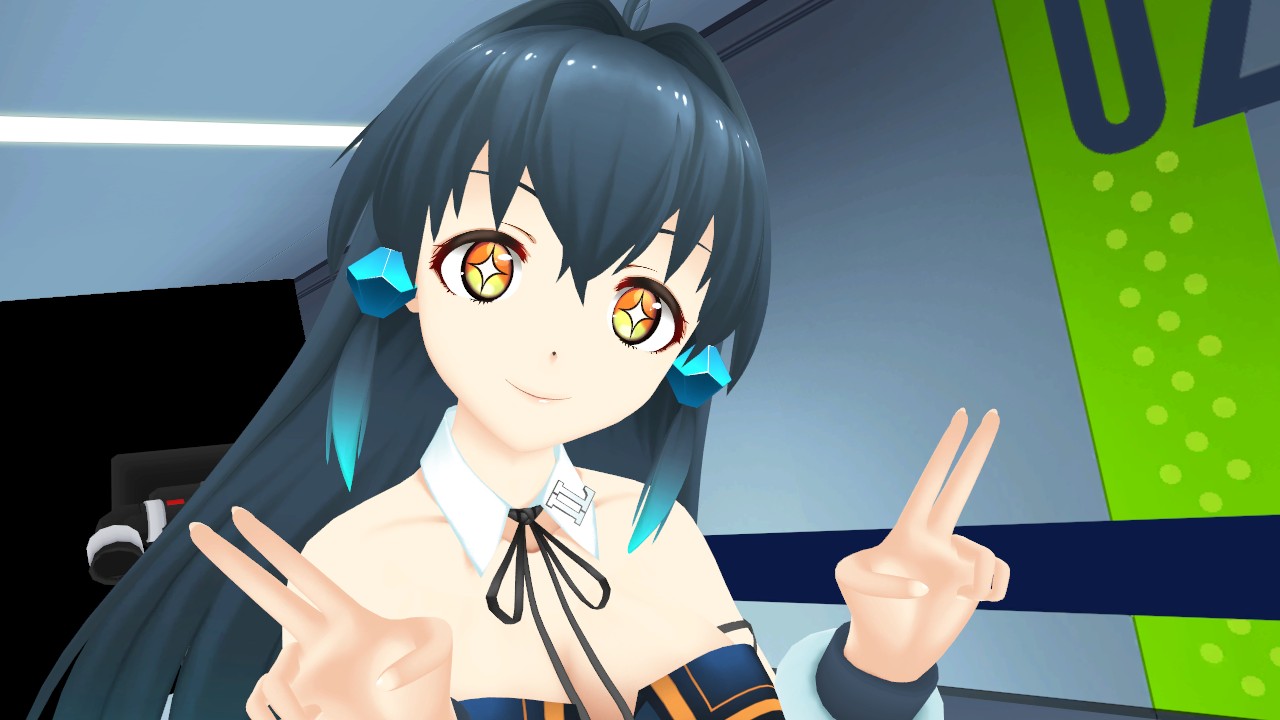Be a cute VR-tuber with Virtual Cast!
One of the most interesting people that I have met at Vive Ecosystem Conference has been Naoki Yamaguchi (山口 直樹), the CVO (Chief Virtual Officer) of Japanese startup Virtual Cast.
Virtual Cast is a solution that lets you be a
In your show, you can connect with other people virtually in two ways. Other people having a VR headset may join your room and so you can do a show together (think about for instance a talk show)… or they can interact with you in the standard way, through written comments and questions. It is very original that you, the owner of the show, will see these comments as 3D writings that fall from the ceiling and you can grab them and interact with them as if they were physical objects on your stage. The same happens with social media posts (like Tweets with a certain hashtag), that you see as physical objects in the same way.
There are other VR services that
Behind the cute girls and the lovely Japanese touch, I am impressed by the technical capabilities of Virtual Cast.
For instance, it supports full body interactions, via different configurations of Vive Trackers on your body. This way you can perform better while on the stage, and for instance, being able to dance. It already offers support for eye and lip tracking. It also supports a multitude of other devices… and there is also an (enterprise) demo on the Looking Glass hardware!
In the application, you can choose among a wide set of cartoon avatars, but you can also import yours, provided that you rig it in the right way following the documentation.
And in the show, you can also interact with a wide multitude of objects. First of all, you can have your personal handy cam, and so be the director of your show, streaming it directly from a camera in your hand. Then there is a whiteboard with a pen, there is a mic, a laser pointer, an additional light, a hammer, etc…
As you can see, the framework is pretty big and with lots of functionalities. If you want to set up a Japanese-themed show, it is for sure worth a try.
After the VEC, I had the pleasure of having a little interview with Naoki, that has told me how the idea of Virtual Cast has born, what are its main features and has talked with me about VR in Japan.
Hello Naoki, introduce yourself to my readers!
Hello! My name is Naoki Yamaguchi, also known as one of the first virtual Youtuber Miyumiyu. I’m the chief virtual officer of our company Virtual Cast, Inc.
How would you describe VirtualCast with your own words?
Virtual Cast is your very own virtual TV studio, where you can be anyone (or anything) you want and broadcast whatever program you can come up with.
One cool feature of Virtual Cast is its comment feature which spawns Twitter comments with a
What are the main features of Virtual Cast?
With Virtual Cast, you can…
- Import avatars very easily from our virtual creation storage service THE SEED ONLINE;
- Use up to 7 VIVE trackers to track your feet, knees, belly, elbows, hands, and head, to replicate complicated movement within the virtual studio;
- Import 3D avatars, 3D backgrounds, and programmable objects;
- Invite up to 6 guests, either privately or publicly;
- Watch videos together with guests and viewers;
- Create interactable objects with Unity and bring it into Virtual Cast.for example, you can create a board game and play it with your friends. They are fully programmable with Lua script, so you can code and run your objects in real-time without restarting Virtual Cast.

Is it true that you already have eye tracking and full body tracking support?
Yes, Virtual Cast supports eye tracking by VIVE Pro Eye and full body tracking with up to 7 VIVE Trackers. Our Virtual Cast Enterprise package supports more professional tracking with motion capture system like MVN.
How does Virtual Cast technically work?
Virtual Cast uses position and rotation information captured from VR headsets, controllers and trackers to puppeteer Unity humanoid models in VR space. Your movement is synched across clients over the internet which allows you to be in the same place as other users.
Are you developing it all alone?
No. We are a team of around 60 developers with offices in Tokyo and Sapporo, working on a variety of projects around Virtual Cast.
Why have you started developing it?
Simple, because I wanted to be an adorable girl.

What are the main difficulties that you found while developing Virtual Cast and how did you overcome them?
The most challenging part was to figure out the way to touch other
How can people start using Virtual Cast? Is it also available in English?
You can find the download link and instruction in English here. The Virtual Cast client program and tutorial wiki are available in English.
What are the lessons that you’ve learned by interacting virtually with lots of people through your application?
I learned that there are more than a few people in the world that want to turn themselves into adorable girls.
What do you want to say to people that, like you, want to become a virtual star?
Adorableness can be made.
Virtual celebrities are becoming always more popular in the East of the world . Why? Do you think that soon we will have also VR celebrities?
Because there are no boundaries for the emotion of adorableness. Sure, I assume there will be virtual celebrities and there will be an avatar that will marry an ultrarich Arab in the near future.
Do you think that in VR is better to try to reproduce ourselves virtually or trying to be a completely different person? Why?
I wish everyone turns themselves into adorable girls totally different from themselves.
Will you add support to let people be something completely different (e.g. an alien, an animal, a ball etc. .)?
Actually, that is already possible. As long as your avatars have Unity humanoid bone setup, you can be anything in any shape. We saw some users turning themselves into a vegetable shop, I mean not the salesperson but the vegetables, boxes and a stall.

What are the differences between VR in Japan and in the rest of the world?
In Japan, housing is quite expensive thus most people do not have sufficient space to play VR games that involve aggressive movements. Also, PC gaming is not as popular as in Western countries. This makes an entrance into the world of PC VR very difficult for casual gamers in Japan. Interestingly
The Vabiniku fad stimulated the demand for VR headsets, VIVE trackers, and voice changers, making them out of stock for a quite a while. Things may change with the rise of stand-alone VR headsets, but for now, it seems Vabiniku is the most popular use case of VR in Japan.

What are your plans for the future?
We will be implementing more and more ways and features to let the world know how beautiful, adorable and handsome you are in the VR space.
Anything else to add to my readers?
Adorableness is justice
I really want to thank Naoki for the interview and for having explained to us the meaning of Vabiniku and the Japanese trend of men wanting to be an adorable girl… or a vegetables shop. And I also compliment him and his team for having been able to create such a huge technical solution.
If you want to start becoming a cute
(Header image by Virtual Cast)
Disclaimer: this blog contains advertisement and affiliate links to sustain itself. If you click on an affiliate link, I'll be very happy because I'll earn a small commission on your purchase. You can find my boring full disclosure here.



